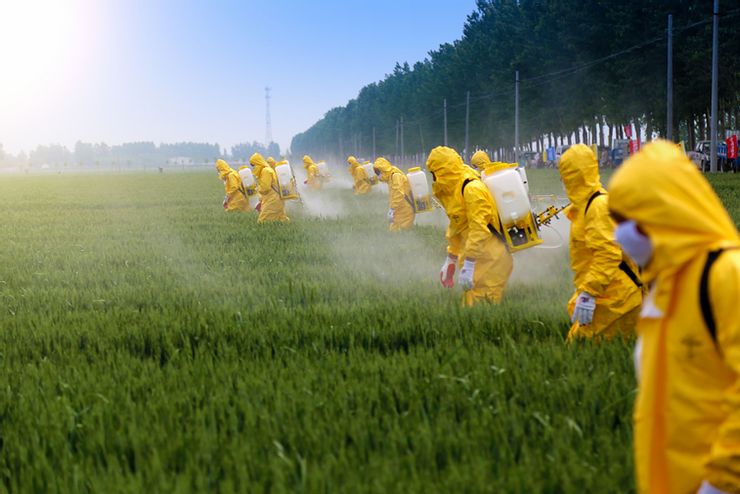Two NGOs made a serious complaint in La Pampa. They claim that the presence of agrochemicals has been detected in drinking water in several localities.
The Union of Land Workers, the Chadileuvú Foundation, and the Pampeana General Medicine Association warned that this is revealed in a report by the Environmental Monitoring Unit (UMA) of the local Ministry of Environment and Climate Change.
They question fumigations and promote agroecology. They detailed that they will disclose the report this Thursday at a press conference.
They claim there are agrochemicals in drinking water in La Pampa
At the beginning of last year, as reported by Diario Textual, a report from the National Institute of Agricultural Technology (INTA) revealed a study that measured the presence of agrochemical residues in the environment.
 Serious complaint due to agrochemicals.
Serious complaint due to agrochemicals.
They were also detected in people in localities in the provinces of Buenos Aires, Córdoba, and La Pampa.
Although the research did not specify the particular Pampean locality where samples were taken, based on the map released, it is speculated to be in an area near the Quemú Quemú or Maracó departments.
Pesticide residues were found in drinking water, such as atrazine, metolachlor, imidacloprid, hydroxyatrazine, imazethapyr, and 2.4D. The correlation between the pesticides used in crops and those found in drinking water was “significant/notable,” according to the report.
Furthermore, it detailed that the individual concentration of pesticides (of a single pesticide) in drinking water “exceeded the European limit in 8.7% and 17.6% of the samples collected from public and private supplies, respectively.”
The authors of the research, agricultural engineer Virginia Aparicio and biochemist Eduardo De Gerónimo, recommended “the inclusion of pesticides within the regulatory framework governing the quality control of drinking water” to ensure the protection of public health and progressively reduce the use of pesticides.
They pointed out that “the adoption of these measures will help ensure the safety and sustainability of drinking water sources for the population.”
What’s happening with the Pesticide Law
La Pampa has a Comprehensive Pesticide Management Law which, among other points, establishes a spraying distance of 3000 meters by air and 500 meters by land from urban spaces.
 Health consequences.
Health consequences.
It also requires municipal authorization for ground applications between 500 and 3000 meters. However, this law has not yet been regulated.
Heavy Metal Pollution: Alarming Numbers in Argentina
Pollution from toxic metals is present in soils worldwide. However, there is a great lack of knowledge about its global distribution. That’s why a recently published study in Science began to address this issue.
The data suggests that between 14% and 17% of farmland (approximately 242 million hectares) worldwide would be affected by pollution from toxic metals.
In this context, they estimate that between 900 and 1400 million people live in regions with greater environmental and public health risks due to this pollution.
In the study, the authors emphasize that once in the soil, heavy metals persist for decades. These pollutants reduce crop yields, affect biodiversity, and jeopardize water quality and food security through bioaccumulation in farm animals.

